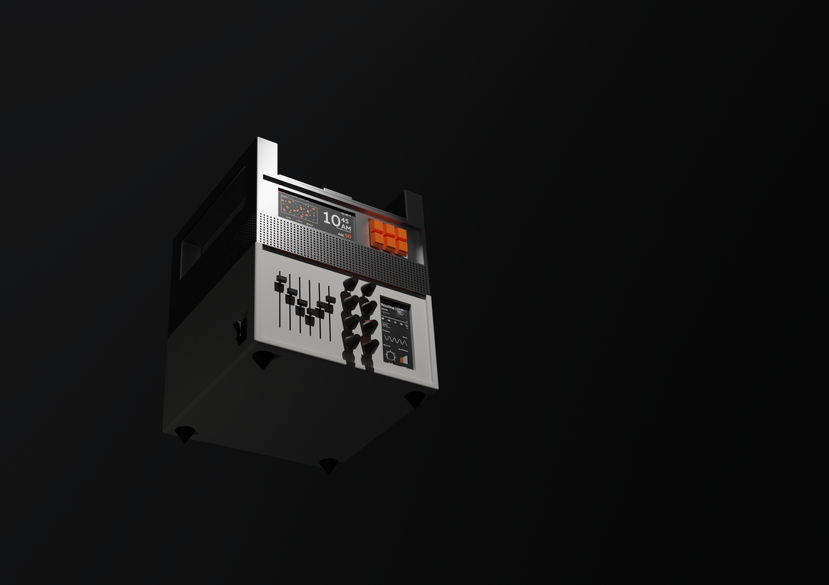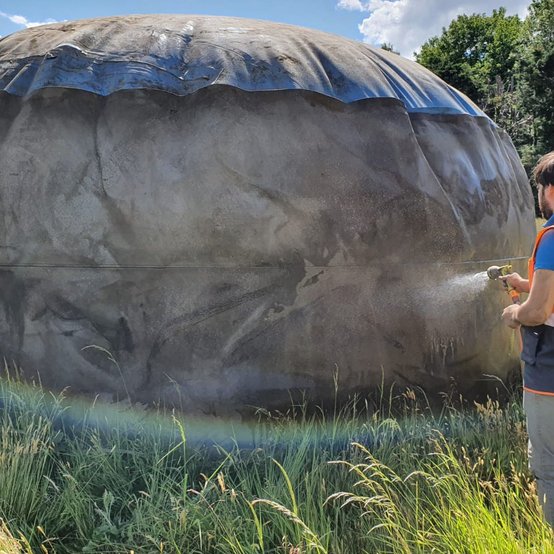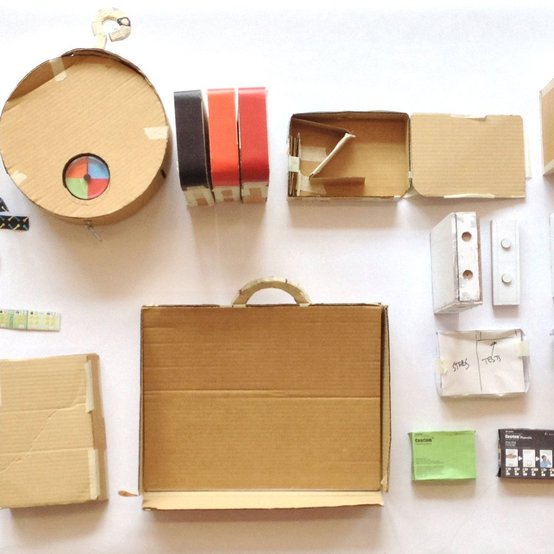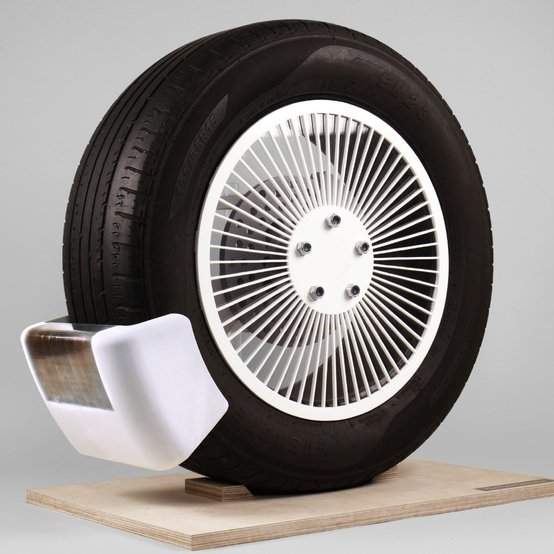
Overview
Be the future agent of change
Key details
- 360 credits
- 2 year programme
- Full-time study
School or Centre
Location
- Battersea
Next open event
Application deadline
- 14 Aug 2024
Career opportunities
- IDE graduates head into diverse creative careers as consultants, innovators, entrepreneurs, researchers, freelancers or within corporations.
Innovation through synergy between creativity, science and technology to create value for society.
The MA/ MSc Innovation Design Engineering (IDE) programme is a unique double Master’s Programme that has been run jointly with Imperial College London for 40 years.
The programme aims to create a new type of innovator, one who will be a global leader in the integration of design, engineering, science and enterprise, and distinctively positioned to tackle the volatile, uncertain, complex and ambiguous challenges society and the planet face. IDE is about transformation: transformation of the individual into a fiercely curious, open-minded, empathic, analytical and motivated individual who can lead teams to produce transformative results; transformation of the practices that transcend disciplinary boundaries through the utilisation of highly creative, practical and iterative processes; and transformation of the understanding of how past, present and future contextual factors can help identify issues and opportunities as a basis for generating outputs that will create lasting impact for humanity and the planet.
We foster a collaborative approach involving transdisciplinary team-working and encourage collaboration with industry and a wide range of stakeholders in innovation ecosystems. IDE is also about nurturing a supportive, empathic culture – the IDE family – not only while you study, but through our extensive alumni network.
Applications for the September 2024 intake are open and will be assessed on a rolling basis. Programmes will close for applications when the maximum number of places have been awarded, or at the final deadline on 14 August, 12 noon (UK time).
Explore graduate work
In July 2023, students presented RCA2023, a series of exhibitions and events. Explore online at https://2023.rca.ac.uk/
You can also view previous events and exhibitions online at Showcase.
Find out more about this programme
Catch the replays from our latest online Open Day.
Gallery
Staff
Facilities
The School of Design is based across our Battersea and Kensington sites.
View all facilitiesStudents have access to the College’s workshops, with traditional facilities for woodworking, metalworking, plastics and resins, including bookable bench spaces. Computer-driven subtractive milling equipment is available, as well as additive rapid prototyping.
Our alumni
Our alumni form an international network of creative individuals who have shaped and continue to shape the world. Click on each name to find out more.
Where will the RCA take you?- Gus Desbarats
- Rodrigo Garcia Gonzalez and Pierre Paslier
- Virginia Gardiner
- Lucy Jung
- Yusuf Muhammed
- Duncan Kerr
- Isabel Lizardi
- Nick Munro
- Maryam Nabavi
- Mark Sanders
- Richard Whitehall

More details on what you'll study.
Find out what you'll cover in this programme.
What you'll cover
Programme stucture
The two-year IDE programme consists of three phases, each characterising the overall nature of the content and learning at each phase. Phase 1: Foundations (Terms 1 & 2) is concerned with students gaining confidence and exploring the IDE transdisciplinary landscape and toolbox building. Phase 2: Consolidation (Terms 3 & 4) is during the summer and the transition period with students working independently, developing their individual and professional agency. Phase 3: Mastery (Terms 5 & 6) is the final period for students to develop significant agency in their own areas of interest and emerging professional pathways, creating a substantial springboard into next steps for ventures, research and careers – and lasting impact.
Phase 1: Terms 1 & 2
Phase 1 is made up of a series of units: IDE Fundamentals; Transdisciplinary Practices; Cyber Physical Systems; Regenerative Materials; Structures & Aesthetics; and Impact.
Each of these units focuses on a particular aspect of innovation, design and engineering and involves practice, as well as research activities within the development of products, services, systems, campaigns and experiences, and in exploring broader societal challenges.
In each unit, you will undertake a design-led project to a brief - sometimes set and sometimes of your own devising. Emphasis is placed on generating imaginative ideas, development and validation through testing prototypes, simulation and gaining feedback from expert stakeholders such as potential end users, designers, engineers and entrepreneurs
Phase 2: Terms 3 & 4
Phase 2 comprises two units, Sustainable Systems and Agency & Implementation, and is about professional consolidation. During phase 2 you will develop your individual and professional agency, identity and pathways through engagement with organisations, your own ventures or within research fields. Phase 2 culminates in you defining and planning your team and individual projects for Phase 3.
Phase 3: Terms 5 & 6
Phase 3 includes a series of units to strengthen your professional agency, leadership, knowledge and skills. Phase 3 includes a team-based project, individual projects and an elective module. The elective modules enable you to develop specialisms in particular areas of interest to you. The thematic areas you choose to explore in your team and individual projects can be diverse and are supported by a broad range of expert tutors.
Requirements
What you need to know before you apply
The programme accepts a wide range of applicants – we want diversity of expertise, culture and experience and we welcome applicants from fields such as business, social science, and the arts in addition to engineering, science and design. Candidates who can demonstrate outstanding potential to develop creative, technical and innovation qualities.
Generally, we are looking for pioneering applicants to demonstrate their:
- creativity, imagination and innovation;
- ability to clearly display and articulate the intentions of your work;
- intellectual engagement in areas relevant to the work and subjects that matter to you;
- technical skills appropriate to IDE and rigour in your approach;
- potential to direct and navigate their learning journey within the structure of the programme, and achieve MA and MSc standards overall.
IDE is a double Master's programme run jointly between the RCA and Imperial College London, and consequently, applicants need to meet the requirements of both institutions. Candidates for IDE are normally required to have at least a UK honours degree at 2:1 level (or the equivalent) in any subject relevant to innovation. It is desirable for candidates to have some relevant work experience.
In exceptional circumstances applicants without the required degree qualification will be considered, for example, excellent professional experience or outstanding creative or technical abilities. Special cases for admissions require unanimous approval from the IDE Entrance Examination Board, then approval by the RCA’s Academic Board for Concessions and Discipline (ABCD) and Imperial’s Programme’s Committee.
What's needed from you
Portfolio requirements
Upload a single PDF format (maximum 20 pages) compilation of work from your previous studies, professional work and personal interests. This should aim to show:
- the excellence of your current expertise, study area or professional activity
- evidence of your interests and ability in the fields of innovation, design and/or engineering
- samples of your creative abilities.
The portfolio content could include: projects and exercises from previous degree courses where relevant, examples of professional work; personal sketchbooks or working sketches; self-generated projects; evidence of an ability to make in 3D; as well as examples of creative work in any other areas.
Each piece of work or project should include clear information about the nature of the work and your role in it, for example, if it is individual work, group work, commercial work in a team, etc.
Video requirements
We ask that you upload a two-minute video recorded on your phone or laptop, speaking to us directly.
High production qualities are not needed. We will review the work in your portfolio, so keep your video simple. We are interested in what you say to find out about you, your thinking, background and ambitions. Respond to a minimum of three of the following prompts. Consider these as the types of questions you would be asked in a face-to-face interview.
- Who or what inspires you?
- How do you hope to incorporate this inspiration into your work?
- What are your aspirations for your future professional life and how will IDE help you get there?
- Talk about what unique skills or perspectives you will bring to the IDE student group.
English-language requirements
If you are not a national of a majority English-speaking country you will need the equivalent of an IELTS Academic score of 6.5 with a 6.0 in the Test of Written English (TWE).
You are exempt from this requirement if you have received a 2.1 degree or above from a university in a majority English-speaking nation within the last two years.
If you need a Student Visa to study at the RCA, you will also need to meet the Home Office’s minimum requirements for entry clearance.
Fees & funding
For this programme
Fees for new students
Fees for September 2024 entry on this programme are outlined below. From 2021 onward, EU students are classified as Overseas for tuition fee purposes.
Home
Overseas and EU
Please note
*Fees for Year 2 of this programme are agreed between Imperial College London and RCA, and will be published on the RCA website at the latest 3 months before commencement of Year 2. Total cost is based on the assumption that the programme is completed in the timeframe stated in the programme details. Additional study time may incur additional charges.
Deposit
New entrants to the College will be required to pay a non-refundable deposit in order to secure their place. This will be offset against the tuition fees.
Home
Overseas and EU
Scholarships
Scholarships
The RCA scholarship programme is growing, with hundreds of financial awards planned for the 2024/5 academic year. Examples of financial awards offered in 2023/24 are given below.
The Deputy Vice-Chancellor’s International Scholarship
For: All MA programmes, MArch, MFA, MDes, MRes & MEd
Eligibility criteria: Students from Australia, Bangladesh, Canada, Colombia, Cyprus, Egypt, France, Germany, Greece, Hong Kong, India, Indonesia, Ireland, Israel, Italy, Japan, Lebanon, Malaysia, Mexico, Nigeria, Pakistan, Poland, Portugal, Saudi Arabia, Singapore, South Korea, Spain, Sri Lanka, Switzerland, Taiwan, Thailand, Turkey, UAE, USA
Eligible fee status: Overseas fee status
Value: £7,000 towards fees
The Deputy Vice Chancellor’s EU Scholarship
For: All MA programmes, MArch, MFA, MDes, MRes & MEd
Eligibility criteria: Students from Austria, Belgium, Bulgaria, Croatia, Cyprus, Czech Republic, Denmark, Estonia, Finland, France, Germany, Greece, Hungary, Iceland, Italy, Latvia, Liechtenstein, Lithuania, Luxembourg, Malta, Netherlands, Norway, Poland, Portugal, Romania, Slovakia, Slovenia, Spain, Sweden, Switzerland, Turkey
Eligible fee status: Overseas fee status
Value: £7,000 towards fees
The Deputy Vice-Chancellor’s UK Scholarship
For: All MA programmes, MArch, MFA, MDes, MRes & MEd
Eligible fee status: Home fee status
Value: £5,000 towards fees
The RCA UK Disabled Students’ Scholarship
For: All MA programmes, MArch, MFA, MDes, MRes & MEd
Eligibility criteria: Students who identify as D/deaf or disabled
Eligible fee status: Home fee status
Value: £6,000 for living costs
The Rothschild Foundation Scholarship
For: MA Environmental Architecture, MA Sculpture, MA Writing, MA Innovation Design Engineering
Eligible fee status: Home fee status
Value: Full fees & maintenance
Sir Frank Bowling Scholarship
For: All programmes excluding PhD & short courses
Eligibility criteria: Black or Black British Caribbean, Black or Black British African, Other Black Background, Mixed - White and Black Caribbean, Mixed - White and Black African
Eligible fee status: Home fee status
Value: Full fees & maintenance
The Vice-Chancellor’s UK Cost of Living Scholarship
For: All MA programmes, MArch, MFA, MDes, MRes & MEd
Eligible fee status: Home fee status
Value: £5,000 for living costs
Logitech Diversity Scholarship in Art and Design
For: MA Design Products, MA Fashion, MA Service Design, MA Textiles, MA/MSc Innovation Design Engineering
Eligibility criteria: Students from under-represented communities
Eligible fee status: Home & Overseas fee status
Value: Full fees
James Dyson Foundation Bursary
For: MA Innovation Design Engineering
Eligible fee status: Home fee status
Value: £10,000 towards fees
House of Fraser Bursary
For: Any MA programme
Eligible fee status: Home fee status
Value: £10,000 towards fees
Power Scholarship
For: MA/MSc Innovation Design Engineering
Eligible fee status: Home & Overseas
Value: £5,000
Applying for a scholarship
You must hold an offer to study on an RCA programme in order to make a scholarship application in Spring 2024. A selection of RCA merit scholarships will also be awarded with programme offers.
We strongly recommend that you apply for your programme as early as possible to stand the best chance of receiving a scholarship. You do not apply directly for individual awards; instead, you will be invited to apply once you have received an offer.
More information
Additional fees
In addition to your programme fees, please be aware that you may incur other additional costs associated with your study during your time at RCA. Additional costs can include purchases and services (without limitation): costs related to the purchase of books, paints, textiles, wood, metal, plastics and/or other materials in connection with your programme, services related to the use of printing and photocopying, lasercutting, 3D printing and CNC. Costs related to attending compulsory field trips, joining student and sport societies, and your Convocation (graduation) ceremony.
If you wish to find out more about what type of additional costs you may incur while studying on your programme, please contact the Head of your Programme to discuss or ask at an online or in person Open Day.
We provide the RCASHOP online, and at our Kensington and Battersea Campuses – this is open to students and staff of the Royal College of Art only to provide paid for materials to support your studies.
We also provide support to our students who require financial assistance whilst studying, including a dedicated Materials Fund.
External funding
There are many funding sources, with some students securing scholarships and others saving money from working. It is impossible to list all the potential funding sources; however, the following information could be useful.
Payments
Tuition fees are due on the first day of the academic year and students are sent an invoice prior to beginning their studies. Payments can be made in advance, on registration or in two instalments.
MA/MSc fees
Students on this programme pay the tuition fees direct to the RCA.
In addition to the tuition fee, students will need to cover other non-academic costs such as flights, visas, accommodation, insurance and general living expenses.
Start your application
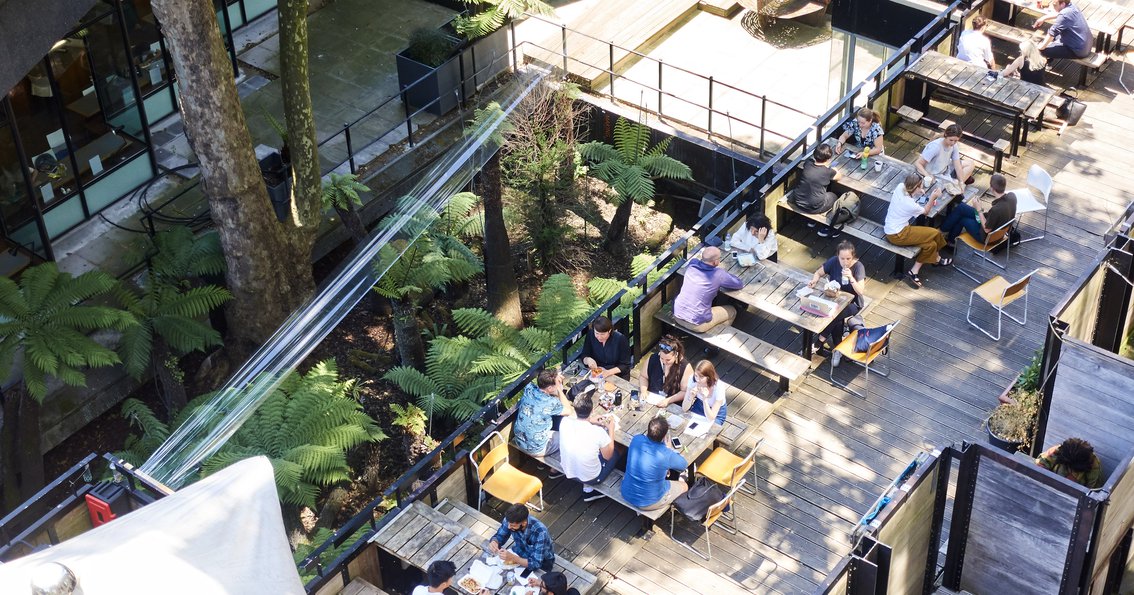
Change your life and be here in 2024. Applications now open.
The Royal College of Art welcomes applicants from all over the world.
Before you begin
Make sure you've read and understood the entrance requirements and key dates
More information about eligibility and key datesCheck you have all the information you need to apply.
Read our application process guideConsider attending an Open Day, or one of our portfolio or application advice sessions
See upcoming sessionsPlease note, all applications must be submitted by 12 noon on the given deadline.
Ask a question
Get in touch if you’d like to find out more or have any questions.
[email protected]



